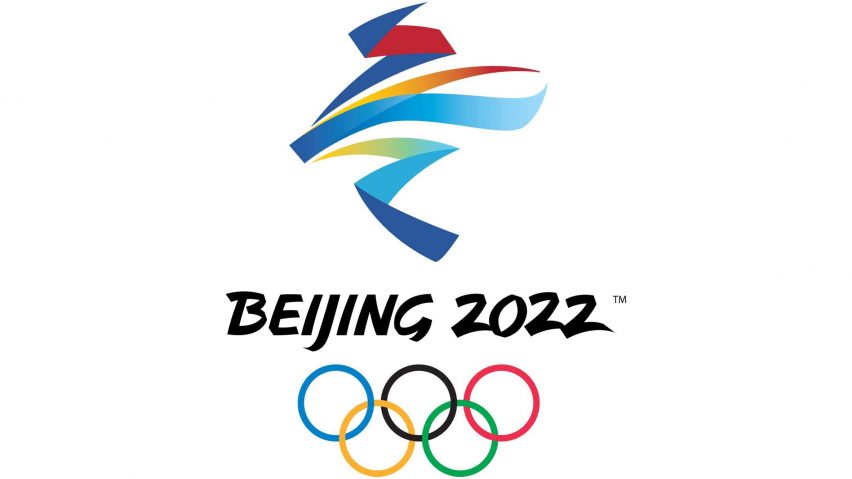Official emblems have been unveiled for the Beijing 2022 Winter Olympics, designed by artist Lin Cunzhen to reference Chinese calligraphy.
Featuring bright gradients of colour, the two logos both incorporate Chinese characters with ribbon-like forms.
For the Olympic Winter Games, Cunzhen – who previously co-designed the emblem for the Nanjing 2014 Summer Youth Olympic Games – has created a flowing motif inspired by 冬, the Chinese character for winter.
While the top of the emblem is designed to resemble a skater, the bottom recalls the form of a skier.
Cunzhen said the flowing form nods to the host country's rolling mountains, Olympic venues, ski pistes and skating rinks, while also highlighting the fact that the games will coincide with Chinese New Year.
Shades of blue are intended to represent "dreams, the future and the purity of ice and snow", while the contrasting flashes of red and yellow – the colours of China's national flag – are to symbolise passion, youth and vitality.
The Paralympic Winter Games emblem, called Flying High, makes similar use of Chinese calligraphy, incorporating the Chinese character for 飞, meaning fly.
The zig-zagging emblem was designed to conjure the image of a wheelchair athlete surging towards the finish line.
In a statement the committee explained: "As well as highlighting Chinese culture, it also embodies the spirit of the Paralympian and their quest for sporting excellence, a quest that inspires and excites the world."
Cunzhen's emblem designs were selected from a total of 4,506 submissions from around the world. They were unveiled last month at a ceremony at the National Aquatics Centre in the Chinese capital.
Addressing the guests before the launch of the two emblems, BOCOG (Beijing Organizing Committee for the Olympic Games) President Cai Qi, who is also the Secretary of the CPC Beijing Municipal Committee, said:
"The two Beijing 2022 emblems vividly illustrate the vitality and passion of winter sports, the resilience of the participating athletes, and the spirit and beauty of contemporary China," said Cai Qi, president of the Beijing Organising Committee for the Olympic Games.
"They also express the wishes and hopes of 1.3 billion Chinese people that Beijing 2022 is a success."
The Olympic logos are often hotly debated – with some proving significantly more popular than others.
The London 2012 logo was hugely controversial, whilke the Rio 2016 emblem impressed many for being "the first 3D logo in the history of the Olympics". And Tokyo 2020 has already had problems with its logo, following accusations of plagiarism.

